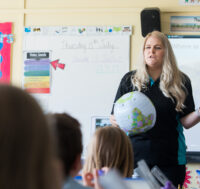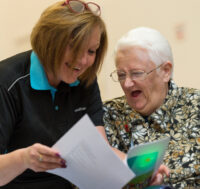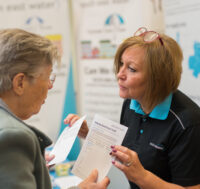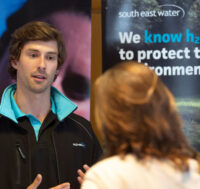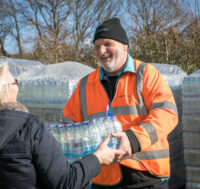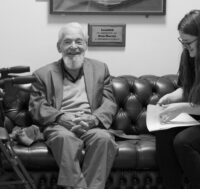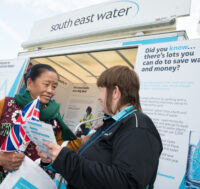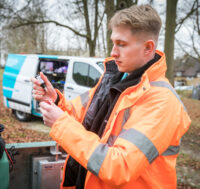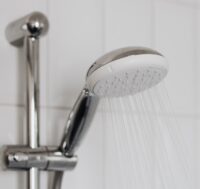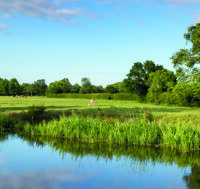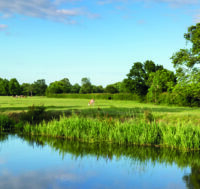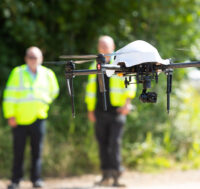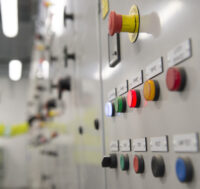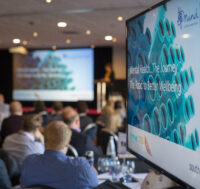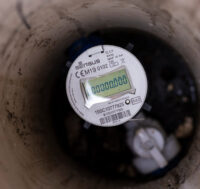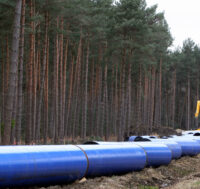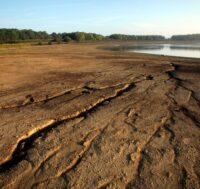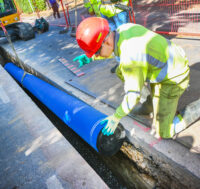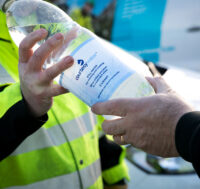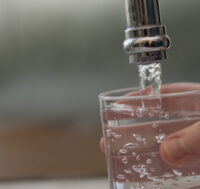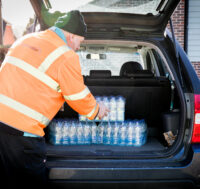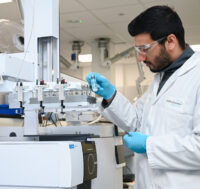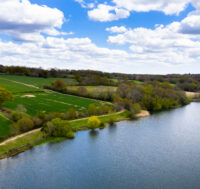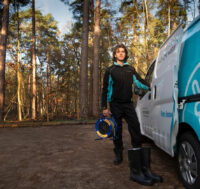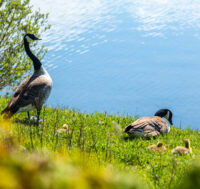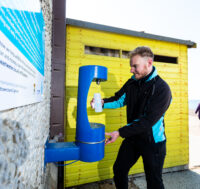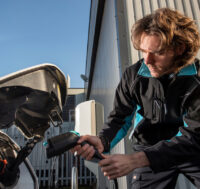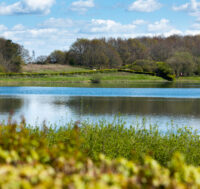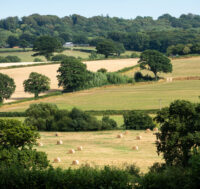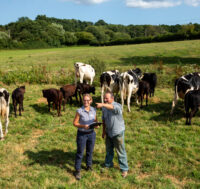Pesticide handling installation protects local rivers
Pesticides such as boscalid, used to protect fruit crops from harmful fungus, are commonly used in fruit production – but are increasingly being found in the rivers we abstract water from, such as the River Teise in Kent.
Working with partners to protect water sources, from groundwater and rivers, for both drinking and water environments is a key driver in our Water Industry National Environment Programme (WINEP) – with propyzamide, carbetamide and metaldehyde being listed as concerns in the River Teise by the Environment Agency and South East Water. Metaldehyde has now been banned and levels have declined but other pesticides, such as Boscalid and Flufenacet, are also being detected at elevated levels.
We understand the role that farm chemicals play in many farming systems, so work hard to find practical solutions which help protect the environment while allowing the farmer to operate sustainably and efficiently.
Using pesticides sustainably was a key concern of fruit farmer Nick Overy, who farms across the west Kent villages of Matfield, Horsmonden and Brenchley.
Mr Overy wanted to make sure he was farming sustainably, and so approached us for a grant to allow him to install new pesticide handling facilities, including a concrete-base and roofed wash-down area, chemical storage, a drainage system and a biofilter to process the run-off.
“We started working with South East Water because we wanted to improve the spraying facilities at Burs Hill Farm. After a one-to-one visit with our Catchment Advisor to discuss our needs, we put in an application for the Capital Grant Scheme funding. It was very easy to apply for; one of the simplest forms I’ve ever had to do."
“The benefits to us and South East Water are that is helps us comply with the Red Tractor audit and LEAF; and keeps any spillages contained.”
While our monitoring data did not suggest that Nick’s farm was posing a large threat to local water quality, as one of the first farms to engage with our advice and funding programme in this catchment, we provided a grant of nearly £10,000 to demonstrate best practice and encourage other farmers to follow suit.
The result is a 145 square metre area large enough to easily fit in the sprayer, complete with a water supply to wash the sprayer with, lined with concrete. The wastewater is then channelled into a drain before being pumped through a biofilter, made of a mixture of compost and straw held in three intermediate bulk containers (IBCs).
This mixture reduces the potency of the sprayer remnants by up to 100,000 times, meaning that the resulting water is safe enough to be released onto the farm’s fields.
When the biofilter mixture needs changing every three years, it can be composted for one further year before being put back onto the land – reducing the amount of waste produced.
This simple but effective measure means that we, and Nick, can be sure that his farming operations are not contributing to the chemical substances found in drinking water sources such as the River Teise.

